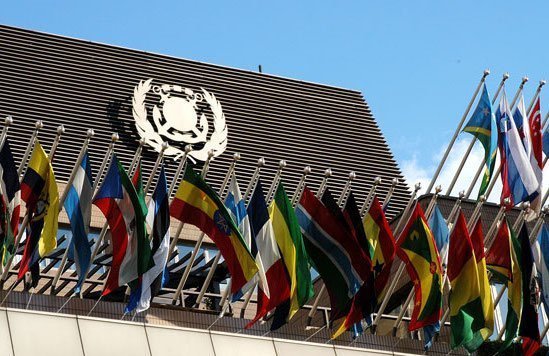Major European shipping nations support “well-to-wake” approach in IMO’s GHG Fuel Standard
A group of IMO member states including major shipping nations such as Greece and Denmark have proposed a Greenhouse Gas Fuel Standard (GFS) that would look at emissions from well-to-wake.

PHOTO: IMO headquarters in London. Getty Images
Their proposal for a GFS was submitted ahead of next week's meeting of the International Maritime Organisation’s (IMO) Intersessional Working Group on Reduction of GHG Emissions from Ships.
They argue that all relevant greenhouse gas (GHG) emissions across the bunker fuel lifecycle – from production to combustion – should be considered to determine the carbon footprint of a fuel.
Conventional bunker fuels emit more carbon dioxide during combustion than during the production and distribution stages. The opposite could be the case for new alternative fuels.
Assessing well-to-wake emissions would also allow for various alternative bunker fuels such as hydrogen and e-methanol, which have different emissions across their lifecycle, to be compared on a more equal footing to each other.
E-methanol has negative emissions at the production stage and positive emission during combustion, while hydrogen has no GHG emissions during combustion but potential emissions during its production.
They say the approach will also help nations to meet objectives of their Nationally Determined Contributions (NDCs), which is at the heart of the Paris Agreement to limit global warming to 1.5°C above pre-industrial levels. NDCs cover efforts made by individual countries to reduce their national emissions.
The group, which mostly consists of EU members, has also proposed measures to benefit early movers and to increase uptake of zero-emission fuels by the shipping industry.
They argue that ships with lower emissions than the new standard should be allowed to roll over their emission allowances to the following year, or sell or transfer them to ships with emissions exceeding their allowances.
As part of this cap-and-trade system, ships would have to calculate the GHG intensity of the fuels and energy sources used on board based on information provided by bunker suppliers through industry-standard bunker deliver notes.
Ships would also have to prove to their administration that they have used compliant fuel. The GHG contributions or surplus units will be recorded in a central database, a process similar to electronic certificates.
The International Chamber of Shipping (ICS), which represents around 80% of the global merchant fleet, has expressed support for adoption of a GFS while highlighting some observations. In its submission to the IMO this month, ICS says the real challenge is the availability and affordability of compliant fuels.
The ICS stresses that operators do not have control over the entire well-to-wake supply chain. It therefore argues that a GFS should have a flexible mechanism to ensure that operators are not unfairly penalised when compliant fuels are not available.





